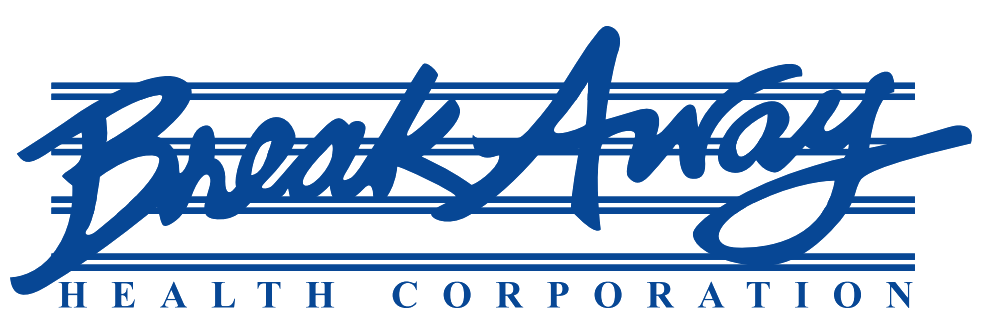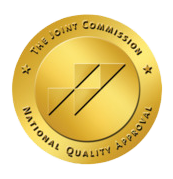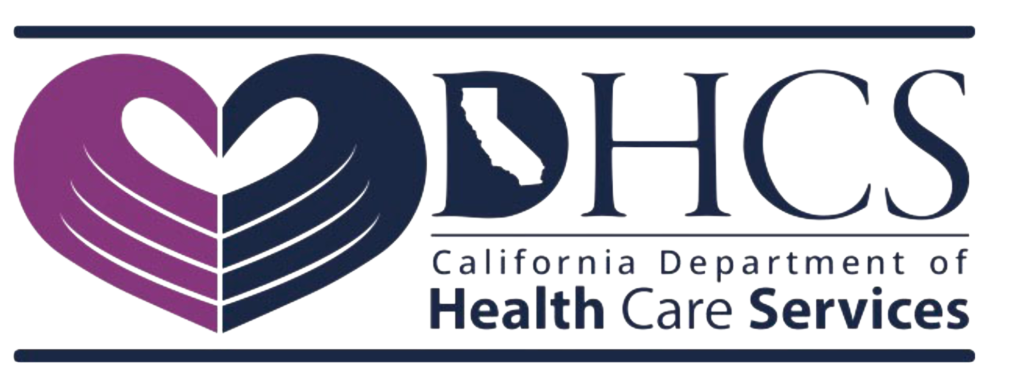Facing Recovery with Mindfulness
Addiction recovery requires more than just stopping the behavior but it demands tools that help people stay present, calm, and focused even when cravings or stress hit. One powerful, yet simple, remedy gaining attention in recovery circles is mindfulness meditation. Mindful meditation is the practice of being fully present in the moment, acknowledging thoughts and feelings without judgment or distraction.
The benefits of mindful meditation go beyond just relaxation. Regular meditation can reduce anxiety, improve sleep, and increase self-awareness. These effects can dramatically shift the addiction recovery process by helping people learn to respond, not react. They begin to recognize triggers without being ruled by them. More importantly, they begin to rebuild a sense of calmness and clarity that addiction once took away. At Breakaway Health in Costa Mesa, CA, we include mindfulness practices as part of our addiction recovery programs. Whether you’re new to meditation or already practicing, our supportive environment makes it easier to explore how meditation can heal addiction.
What Is Mindful Meditation?
Mindful meditation is the practice of staying present and aware without the fear of being judged. Instead of trying to change or avoid thoughts, practitioners are encouraged to observe what’s happening in their minds and bodies.
In addiction recovery, this non-reactive awareness helps individuals identify cravings, recognize emotional patterns, and ground themselves in the present moment. That makes it easier to pause and make healthier decisions, rather than falling into automatic responses.
Mindfulness meditation is typically practiced through:
- Focused breathing
- Body scans
- Guided imagery
- Sitting or walking meditation
Even a few minutes a day can be enough to begin rewiring the brain’s response to stress and desire.
How Does Mindfulness Meditation Support Addiction Recovery?
At its core, mindful meditation teaches people how to deal with discomfort instead of running from it. This skill is invaluable when it comes to battling addiction and pursuing recovery. Recovery often involves intense emotions, intrusive thoughts, and the urge to numb or escape. Mindful meditation helps individuals struggling with addiction both psychologically and physically by giving them the space to pause and make healthier choices.
Regulating Emotional Triggers
Many people turn to substances to manage emotions like fear, sadness, anger, or boredom. These emotions can be intense and feel unmanageable, especially without healthy coping mechanisms. Mindfulness does not eradicate these feelings but simply teaches people how to face them with more ease by creating a sense of emotional distance from them. Instead of reacting impulsively, individuals can observe their emotions, breathe through discomfort, and respond intentionally. This reduces emotionally driven actions and lowers the risk of relapse by building emotional resilience over time.
Reducing Cravings
Cravings often appear like tidal waves which are strong, sudden, and convincing. They are intense urges to use substances, often triggered by emotions, memories, or environmental cues. Cravings can feel physical or psychological and may present as restlessness, obsessive thoughts, or physical tension. Common types of cravings include:
- Emotional cravings driven by stress, sadness, or boredom
- Habitual cravings linked to daily routines (e.g., drinking after work)
- Social cravings triggered by people or places associated with past use
- Physical cravings marked by bodily sensations like tightness or agitation
Mindfulness helps by creating a gap between the craving and the action. It teaches people to sit with the urge, observe it without panicking, and allow it to pass. With time, people learn that they can feel a craving and not act on it. Regaining that sense of control in one’s life can be monumental in the stages of recovery and can in turn allow the individual to overcome their addiction.
Repairing Thought Patterns
Addiction often fuels harsh thoughts and shame, leading people to internalize feelings of worthlessness or failure. These thoughts can become deeply ingrained in one’s mind and be very difficult to disrupt. Instead of judging every thought or emotion, mindful meditation encourages curiosity, compassion, and non-reactivity. Over time, this shift in perception can reshape how individuals view themselves, helping to quiet negative inner thoughts. This means replacing self-critical thinking with healthier patterns such as:
- “I made mistakes, but I’m working on becoming better.”
- “I deserve to care for myself and heal.”
- “I am not my addiction; I am a person growing through recovery.”
- “Every effort I make matters, even if it feels small.”
As a result, mindful meditation supports the development of stronger mental resilience, increased self-esteem, and a more supportive inner voice during the recovery process.
Strengthening Focus and Sleep
Substance use and withdrawal can damage sleep cycles and concentration, leading to persistent fatigue, poor memory, and difficulty focusing on tasks. This mental haze can interfere with daily responsibilities and the recovery process as a whole. Meditation, especially before bed or first thing in the morning, helps restore balance to both by promoting relaxation and helping your body find a more balanced sleep schedule.
Meditation promotes a slower breathing pattern and calming mental state, which are both essential for restful sleep and clear thinking. With improved rest and mental clarity, individuals often find it easier to:
- Engage more effectively in therapy sessions
- Follow through with daily treatment goals
- Maintain consistency in their recovery routines and responsibilities
Can Meditation Heal Addiction?
There is no treatment that is a one size fits all cure to addiction but meditation plays a powerful role in long-term healing. It’s not a standalone fix but it can deeply enhance other forms of treatment. Whether someone is in early sobriety or years into recovery, meditation can serve as a helpful tool for regulating emotions and clearer thinking.
Brain and Body Connection
Research shows that mindfulness practice can lead to measurable changes in the brain’s structure and how it functions. Regions such as the amygdala (which controls fear and stress response), the prefrontal cortex (responsible for decision-making and impulse control), and the hippocampus (linked to memory and emotional regulation) have all been shown to benefit from regular meditation. These positive changes can result in greater emotional stability, better self-control, and a stronger ability to handle high-risk situations without reverting to substance use. With consistent practice, mindfulness can help rebuild brain pathways that support healthier behavior and long-term recovery.
Meditation as a Daily Remedy
Think of meditation as a remedy that helps soothe the mind and body each and every day. When used correctly and consistently, it can ease symptoms of anxiety, reduce impulsive behavior, and build new, healthier thought patterns. Here are a few of the ways meditation can positively influence recovery:
- Eases restlessness and racing thoughts by creating space for calm
- Reduces impulsive decision-making by encouraging pause and reflection
- Helps break the cycle of negative thinking and builds positive mental habits
- Encourages emotional stability during stressful moments
- Provides a daily practice of grounding, helping people stay connected to the present
Contrary to popular belief, meditation is not about sitting in silence for hours. Meditation enhances pausing, breathing, and becoming more aware of what’s happening inside.
Meditation in Addiction Treatment Programs
At Breakaway Health, we integrate mindful practices into clinical care. Practices typically include:
- Guided meditation sessions during treatment
- Breathing exercises before or after therapy
- Quiet rooms or outdoor space for personal practice
- Group reflections on how mindfulness is helping in recovery
These practices are never forced and clients are invited to explore them at their own pace. For many, this is the first time they’ve been taught how to sit still and observe their thoughts without fear or judgment.
Mindful meditation also pairs well with therapies such as CBT(Cognitive Behavioral Therapy) and DBT(Dialectical Behavior Therapy), which encourage staying grounded in what’s happening right now, rather than getting lost in past regrets or worrying about what might happen next. Together, they reinforce self-awareness and promote long-term recovery strategies.
Simple Ways to Make Mindfulness Part of Your Day
One reason mindfulness is so effective is its flexibility. You don’t need special equipment or hours of free time. Taking 5–10 minutes a day can make a noticeable difference in how you feel and respond to stress.
Ways to practice mindfulness include:
- Deep breathing for 3 minutes before bed
- Taking a mindful walk without music or distractions
- Using a guided meditation app
- Noticing your thoughts during cravings and gently naming them without judgment
It’s completely natural for your mind to drift during meditation because everyone experiences it. What truly matters is the practice of gently bringing your focus back to the present moment each time it wanders. This repeated return strengthens emotional resilience and gradually helps build healthier mental habits.
Get Help Today at Breakaway Health
Mindfulness meditation doesn’t replace treatment, it simply enhances it. For those recovering from addiction, it provides a safe, calming space to regroup, reflect, and respond. Whether you’re dealing with cravings, stress, or emotional pain, mindful meditation can help quiet the mind and support lasting change.
At Breakaway Health, we believe in treating the whole person which is why our programs include options for mindfulness practice alongside clinical care so clients can build both inner peace and outer structure. Call Breakaway Health Today!
Frequently Asked Questions (FAQs)
1. How does mindfulness meditation support addiction recovery?
It helps people regulate emotions, reduce cravings, and respond to stress more calmly, which supports long-term healing and relapse prevention.
2. Does mindful meditation support addiction recovery for everyone?
Most people can benefit from mindful meditation. Even those with no experience can start with simple techniques and build up with support.
3. Can meditation heal addiction?
Meditation alone isn’t a cure, but it complements other treatments and supports emotional healing, making recovery more stable and manageable.
4. How often should I meditate during recovery?
Even five minutes a day can help. Consistency is more important than duration, and it can be adjusted based on comfort and routine.
5. Is mindfulness part of treatment at Breakaway Health?
Yes. We incorporate mindfulness meditation as part of our holistic addiction recovery programs to support mental clarity, emotional balance, and personal growth.







